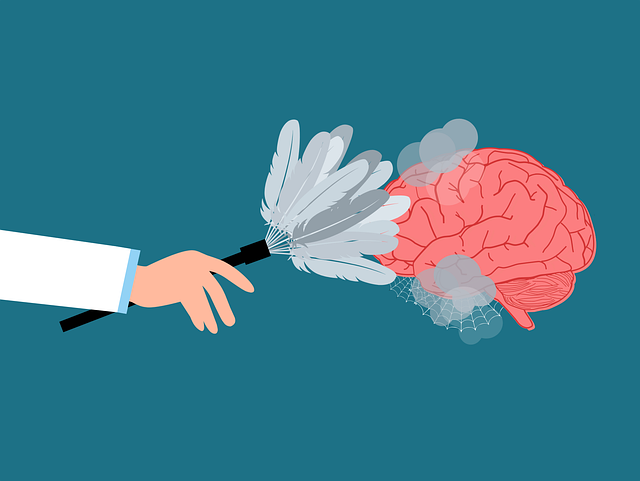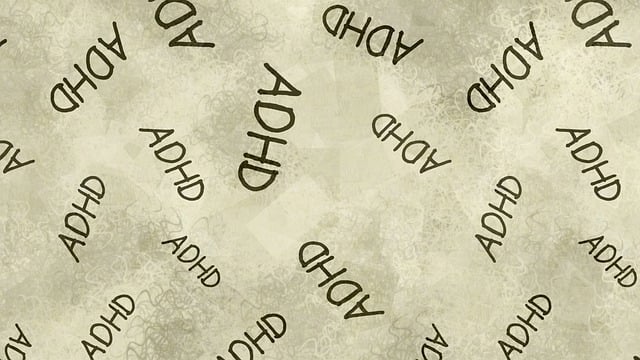Centennial Hebrew Speaking Therapy is revolutionizing mental healthcare accessibility and cultural sensitivity through targeted outreach programs. By offering tailored support for Hebrew-speaking individuals, they combine therapy with cultural identity, promoting open dialogue and hope. Their holistic approach incorporates cultural self-care practices to prevent depression, emphasizing the interconnectedness of language, culture, and well-being. Impactful community outreach requires strategic engagement, interactive activities fostering inner strength and resilience, and active participation in stress reduction. Prioritizing cultural sensitivity, they adopt Mind Over Matter principles, ensuring inclusive environments and creating safe spaces through initiatives like their Mental Wellness Podcast Series. Evaluating success involves measuring emotional well-being, mental health improvements, stigma reduction, retention rates, and referrals, showcasing the program's sustained impact on community health.
Community outreach programs, like Centennial Hebrew Speaking Therapy, play a pivotal role in fostering connection and enhancing well-being. This article explores the strategic implementation of such initiatives, focusing on engagement, cultural sensitivity, and measurable impact. We delve into practical strategies for designing effective programs that resonate with diverse communities. By understanding the importance of contextualization and adopting best practices, organizations like Centennial Hebrew Speaking Therapy can create meaningful connections and drive positive change.
- Understanding Community Outreach: The Role of Centennial Hebrew Speaking Therapy
- Designing Effective Programs: Strategies for Engagement and Impact
- Implementing with Sensitivity: Cultural Considerations and Best Practices
- Measuring Success: Evaluation Metrics for Community Outreach Programs
Understanding Community Outreach: The Role of Centennial Hebrew Speaking Therapy

Community outreach programs play a pivotal role in connecting mental healthcare services to diverse communities, ensuring accessibility and cultural sensitivity. Centennial Hebrew Speaking Therapy exemplifies this approach, specializing in providing therapeutic support tailored to the unique needs and cultural backgrounds of Hebrew-speaking individuals. By offering services that bridge the gap between traditional therapy and cultural identity, they foster an environment where individuals can openly discuss their challenges, fostering hope and resilience.
This holistic approach goes beyond treating specific mental health disorders; it incorporates self-care practices rooted in cultural traditions, promoting depression prevention within these communities. The program’s success lies in its understanding of the intricate relationship between language, culture, and mental well-being, ensuring that therapeutic interventions are not just effective but also culturally sensitive, ultimately enriching the lives of those they serve.
Designing Effective Programs: Strategies for Engagement and Impact

Designing effective community outreach programs like those offered by Centennial Hebrew Speaking Therapy requires a strategic approach to maximize engagement and impact. The key lies in understanding the unique needs and interests of the target population, ensuring accessibility, and creating meaningful connections. Incorporating interactive activities that foster Inner Strength Development and Resilience Building can empower individuals with tools to navigate challenges.
Centennial Hebrew Speaking Therapy’s programs should go beyond mere information dissemination; they must promote active participation in stress reduction methods. By integrating these techniques into engaging sessions, the outreach initiative becomes a powerful catalyst for positive change. Through strategic design, the therapy center can offer transformative experiences that resonate with participants, ultimately enhancing overall well-being within the community.
Implementing with Sensitivity: Cultural Considerations and Best Practices

Implementing community outreach programs requires a nuanced approach, especially when navigating diverse cultural landscapes. At Centennial Hebrew Speaking Therapy, we recognize that mental healthcare must be accessible and culturally sensitive to meet the unique needs of various communities. When introducing new initiatives, it’s essential to understand the cultural context and values of the target population. This involves delving into their traditions, beliefs, and any existing barriers they may face in accessing therapy services.
Adopting the Mind Over Matter Principles, our team emphasizes the importance of cultural sensitivity in every aspect of outreach. This includes tailoring communication strategies, ensuring confidentiality, and providing inclusive environments. For instance, producing a Mental Wellness Podcast Series Production focused on diverse communities can be a powerful tool. By incorporating cultural perspectives and stories, we create a safe space for dialogue and foster understanding. Cultural sensitivity in mental healthcare practice is not just a best practice; it’s a game-changer that empowers individuals to embrace their mental wellness journey.
Measuring Success: Evaluation Metrics for Community Outreach Programs

Evaluating the success of community outreach programs like those offered by Centennial Hebrew Speaking Therapy is crucial for understanding their impact and identifying areas for improvement. Metrics should go beyond simple attendance numbers to capture the essence of community engagement and well-being. One effective measure is tracking changes in participants’ emotional well-being through surveys or qualitative feedback. By assessing improvements in mental health, stress levels, and overall satisfaction, organizers can gauge the program’s effectiveness in promoting Emotional Well-being Promotion Techniques.
Additionally, measuring the reduction in stigma associated with mental illness within the community can be a powerful indicator of success. This could involve conducting pre- and post-program surveys to compare attitudes towards mental health issues. Such evaluations are not only informative but also encourage ongoing Mental Illness Stigma Reduction Efforts, fostering a more inclusive and supportive environment. Moreover, tracking long-term participant retention rates and program referrals can demonstrate the sustained impact of these initiatives on Stress Reduction Methods and overall community health.
Community outreach programs, like those offered by Centennial Hebrew Speaking Therapy, play a vital role in fostering connections and enhancing well-being. By understanding cultural nuances, employing engaging strategies, and utilizing appropriate evaluation metrics, initiatives can effectively address community needs. Implementing these best practices ensures that outreach programs create meaningful impacts and build stronger, more inclusive communities.














